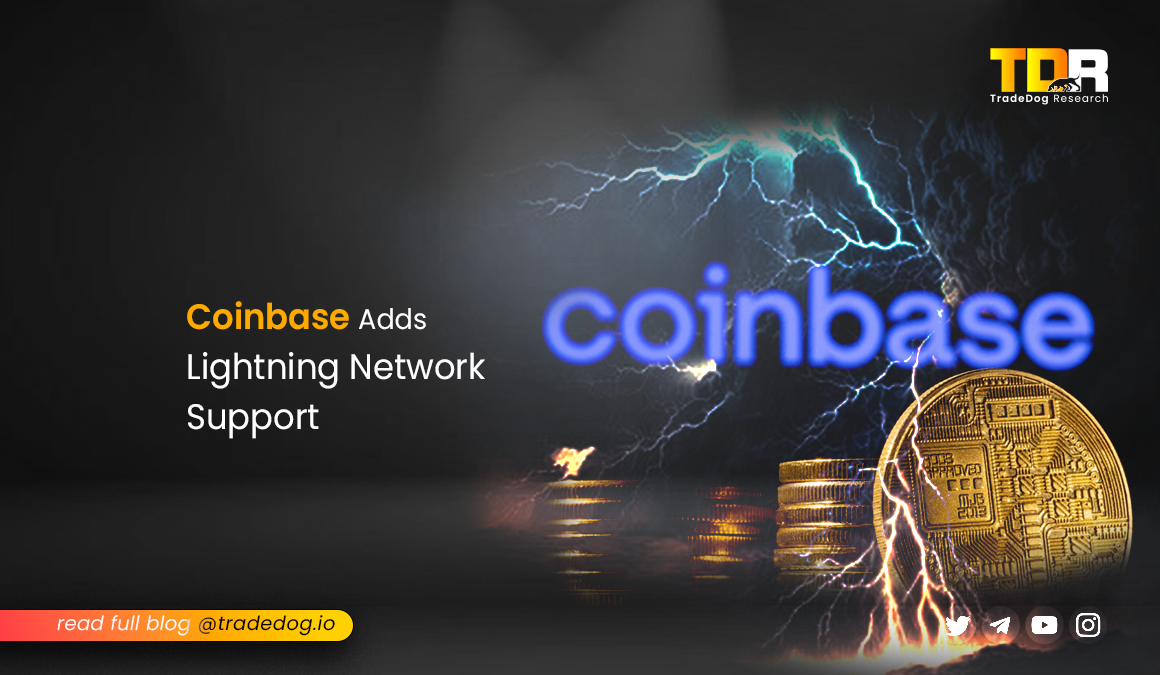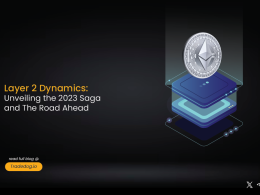Quick Links
Coinbase, one of the leading cryptocurrency exchanges, has finally integrated the Lightning Network (LN), a layer 2 scaling solution for Bitcoin. Coinbase chose Lightning payments solution provider Lightspark as a partner for the integration. This means Coinbase users can now enjoy faster and cheaper Bitcoin transactions, potentially making crypto payments more practical for everyday use.
Why Lightning Network?
Bitcoin’s popularity has led to network congestion, resulting in slow and expensive transactions. The Lightning Network is a “layer 2” scaling solution built on top of Bitcoin. It operates by creating off-chain payment channels between users. These channels allow for instant and cheap Bitcoin transfers without needing to clog up the main Bitcoin blockchain. Transactions are only recorded on the blockchain when the channel is closed, significantly improving efficiency.
Benefits for Users
Faster Transactions: Unlike traditional Bitcoin transactions that can take anywhere from 10 minutes to 2 hours, Lightning Network transactions are nearly instantaneous. This makes it ideal for everyday payments where speed is crucial.
Lower Fees: Coinbase users can expect to pay significantly lower fees for Bitcoin transactions using the Lightning Network. Coinbase claims the cost is 20 times less than the average credit card transaction fee and a fraction of wire transfer fees.
Increased Utility for Bitcoin: By enabling faster and cheaper transactions, the Lightning Network integration makes Bitcoin more usable for everyday purposes, potentially expanding its adoption.
To facilitate the Lightning Network integration, Coinbase partnered with Lightspark, a company focused on Lightning Network payment solutions. Lightspark uses a “remote-key signing implementation” where Coinbase retains control of the signing keys while Lightspark manages the Lightning node responsible for processing transactions. This ensures security while leveraging Lightspark’s expertise.
Security Considerations
While Lightning Network offers significant advantages, it’s important to note that it’s a relatively new technology. Some security concerns have been raised by Bitcoin developers. Coinbase has addressed these concerns by implementing a “remote-key signing” system. This means Coinbase retains control of the signing keys, while Lightspark hosts the Lightning node that processes transactions.
Community Response
The integration of the Lightning Network by Coinbase has been met with a positive response from the cryptocurrency community. Many see it as a significant step towards wider adoption of Bitcoin for payments. However, some community members have raised concerns about potential security risks associated with Lightning Network, urging developers to focus on addressing these issues.
David Marcus, CEO of Lightspark (former PayPal president), highlighted the significance of Coinbase’s Lightning Network integration. He stated “We’re so thrilled to be part of this journey with you to bring Lightning to 100s of millions of people in over 100 countries. Big milestone for the entire network and for Bitcoin.”
Coinbase’s decision to integrate the Lightning Network aligns with its stated goal of building a “one-second, one-cent global payments system.” By offering faster and cheaper Bitcoin transactions, Coinbase aims to make cryptocurrency a more attractive alternative to traditional financial services. Additionally, the exchange sees the Lightning Network as a way to increase the utility of Bitcoin for its millions of users worldwide. Coinbase CEO Brian Armstrong said in a press release, “The Lightning Network is essential for scaling Bitcoin and making it a viable option for everyday transactions.”
Looking Ahead
The integration of the Lightning Network by Coinbase is a major development for the cryptocurrency industry. It has the potential to significantly improve the usability and scalability of Bitcoin, paving the way for wider adoption as a method of payment. While some security concerns remain, continued development and collaboration within the community are likely to address these issues. As the Lightning Network matures, we can expect to see even more cryptocurrency exchanges and businesses embrace this technology, shaping the future of digital payments.









